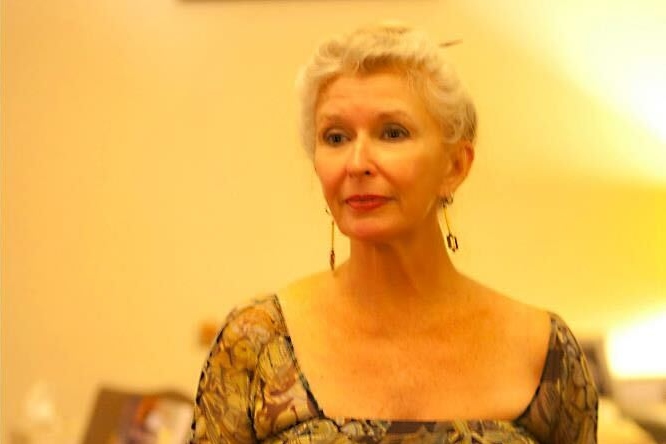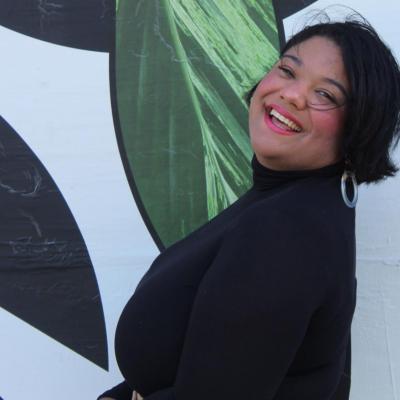
In 1970, then 29-year-old Clarinda Harriss joined late poet Michael Egan to raise money for a new small press called New Poets Series, which was dedicated to publishing writers’ first books. It was a fitting cause for Harriss to champion at the time, as she herself was in the process of releasing her own inaugural work.
After Egan moved to Italy in 1973, Harriss took the reins and later renamed the press BrickHouse Books, after the brick facade of her former West Towson home. In the five decades since, the local company has made a name for itself as Maryland’s oldest continuously operating small press, known for publishing material of all genres—from poetry to artistic nonfiction—with a focus on creating space for marginalized authors.
Now 84, Harriss is as committed to her work as ever, overseeing BrickHouse’s four imprints (New Poets Series, dedicated to poets’ first books; Stonewall, dedicated to publishing poetry from an LBGTQ+ perspective; Chestnut Hills Press, for authors who can pay their own publication costs; and Side Streets, reserved for category-defying manuscripts) which are all meant to secure writers on their paths.
To celebrate the 50-year anniversary of Harriss at the helm of BrickHouse, The Ivy Bookshop is hosting a special celebration on its patio this Thursday, July 20 at 6 p.m. There, attendees will hear speeches by writers who got their start with BrickHouse and have the opportunity to purchase some of the press’s most noteworthy books.
Ahead of the event, we caught up with Harriss to talk about BrickHouse’s legacy, her own writing, and some of her famous literary friends.
Looking back on BrickHouse’s 50-year trajectory, what has been the key to its longevity?
Somebody like me, and my wonderful group of poets and professors who are assistant editors, who are willing to keep doing it. I had actually decided to close BrickHouse a year ago. I said to my boyfriend Gary, who also writes poetry, “I would be able to spend so much more time with you!” And he said, “You can do that and still do the other thing you love, You will not be happy [if you shut down.]” And he was right.
What have been your biggest triumphs and setbacks as a small publisher?
The triumph is simply that some wonderful books get published. The other delight is getting to know some of our authors, who are among the people that I met only because of BrickHouse Books. One hurdle has been having an incredibly teensy-weensy budget. Another is that there are always more submissions than we can really keep abreast of. It’s pretty intense. You’re dealing as carefully as you can with people’s feelings. You have to read their manuscripts carefully—they wouldn’t be submitting if they didn’t care about their material very, very deeply.
What have you learned from providing a platform for writers of less-represented backgrounds throughout the years?
I worked with prison writers for decades. We’ve published several books by [local exoneree] Walter Lomax [who served 39 years in prison after being wrongfully convicted for murder,] along with the Maryland House of Corrections Writers’ Club—which was founded with the help of a former colleague of mine. I taught there once a month for years—and boy did I learn from that. Later on, we started our Stonewall imprint [dedicated to publishing works from an LGBTQ+ perspective] because there were several years where all of our best manuscripts came from LGBTQ writers. We started that because it wasn’t there.
How did your own love of writing first come to be?
I couldn’t help myself. I decided I would write an epic poem. The basis was a string of pearls, and each pearl stood for a different thing. But I was like six years old, and my grandmother said, “Maybe you should write about something like kittens.” I took that to heart, and I didn’t write another epic poem, ever. But I’ve always written in one way or another.
Your father was an editor for The Evening Sun and good friends with H.L. Mencken. Did that influence your decision to start writing at all?
When I was a kid, with a writer for a father and an academic for a mother, I said “I’ll never be a writer, I’ll never be an academic, and I will, especially, never be an editor,” because they work too hard. So of course, I grew up to be all those things almost immediately.
Henry Mencken actually introduced my parents, and he was the first person to see me alive. He came and brought my mother a bottle of Liebfraumilch [a German white wine served to nursing mothers] and drank it all himself. He said I was a very intelligent-looking baby. You always came away from a conversation with him thinking that you were the smartest person in the whole world. You wouldn’t think it of a bombastic-seeming person like him, but he was the most brilliant listener. He could prod you into heights of intelligence that you didn’t know you had.
On the subject of legendary Baltimore writers, we’d be remiss without also mentioning your relationship to Lucille Clifton.
She was a close friend of mine. I actually wrote a rather huffy note to Poetry Magazine the other day because they mentioned Baltimore in a very, very long essay on Lucille Clifton, only as being the place where she died. And Baltimore had a great deal to do with both her adult and her children’s books. She lived here for at least 30 years.
Your journey also includes teaching?
I’ve taught for 50 years. I started teaching for Baltimore City Public Schools while I was still a graduate student, and I loved it. I taught first at Forest Park High School, and I’m still close friends with some of those students, because I was only a couple of years older than they were. And then in 1971, when my second child was born—he was actually a month old—I marched into Towson University, carrying him in a basket, and they said “Can you start today?” I actually did start that day, as an adjunct professor. The baby was in the basket in the classroom while I taught. It’s a real Cinderella story. I went from being the lowliest of emergency part-timers to the chair of the English department at Towson, where I got to teach and run the literary magazine.
What advice do you give young authors?
Keep writing, but also—and this is even more important—keep reading. I don’t just mean reading poetry. Read Popular Science, read The New York Times, and read novels. Oh, please read novels. I have told people “You need to stop writing so much and go read, and garden, and swim, and walk.” I compose while I’m walking all the time. The next piece of advice I got from my father, and he’s so right—don’t think that because you’re a relatively little-known writer, you can only send your writing to the littlest magazines you can possibly find, with the most unknown editors. Au contraire! Send to good places.
What do you hope BrickHouse’s legacy will be?
The books. And the authors who made a name for themselves, partly as a result of the books, and then went on from there.
